7 Caribbean islands where hurricane season won’t impact your holiday
Avoid tropical storms with these less risky options
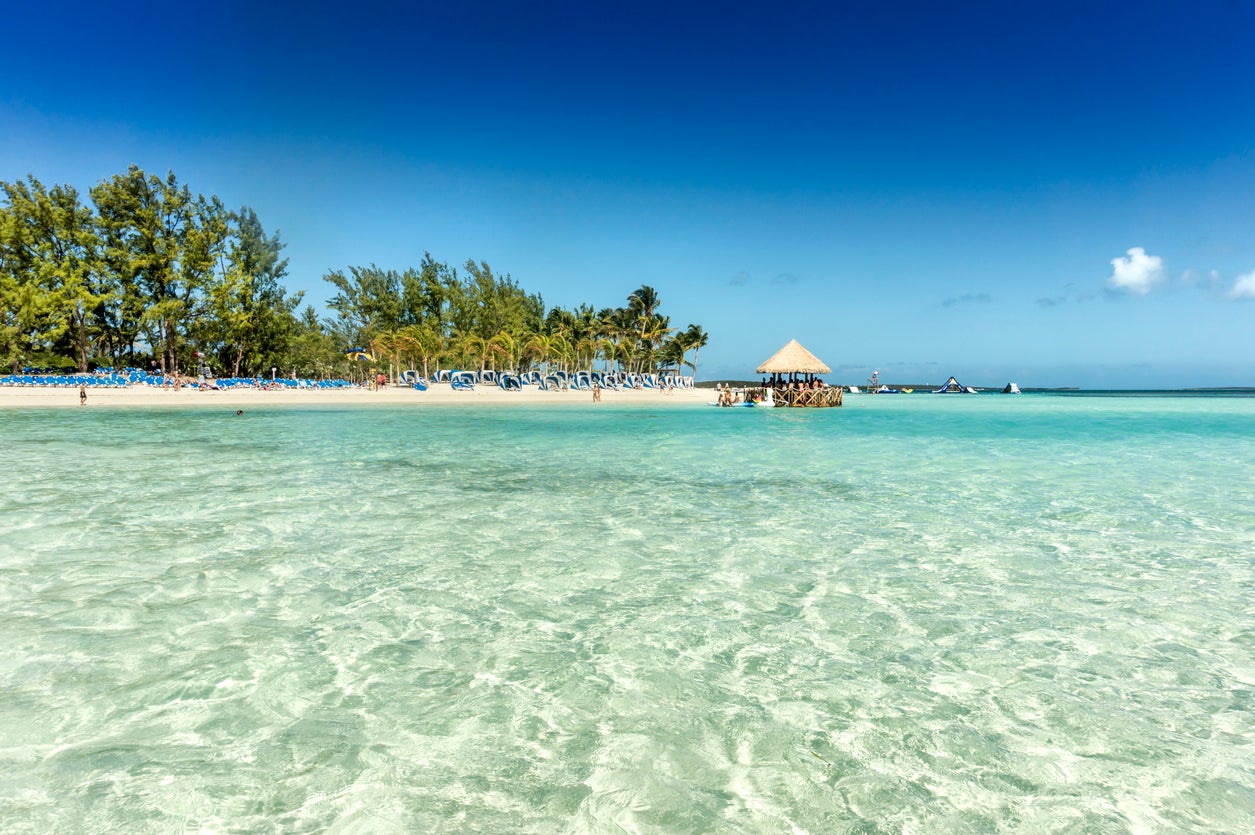
Your support helps us to tell the story
From reproductive rights to climate change to Big Tech, The Independent is on the ground when the story is developing. Whether it's investigating the financials of Elon Musk's pro-Trump PAC or producing our latest documentary, 'The A Word', which shines a light on the American women fighting for reproductive rights, we know how important it is to parse out the facts from the messaging.
At such a critical moment in US history, we need reporters on the ground. Your donation allows us to keep sending journalists to speak to both sides of the story.
The Independent is trusted by Americans across the entire political spectrum. And unlike many other quality news outlets, we choose not to lock Americans out of our reporting and analysis with paywalls. We believe quality journalism should be available to everyone, paid for by those who can afford it.
Your support makes all the difference.When dreaming of a trip to the Caribbean, you’re likely thinking of pristine white sands, tropical palms wafting in the warm breeze, and pure, zinging-blue waters lapping the shore.
From Antigua to the Bahamas, the region is well-known for idyllic, paradise-like beaches, laid-back island charm, rugged natural landscapes and swoon-worthy food and drink scenes that have made the countries of the Caribbean Sea popular with visitors the world over, with 28 million people visiting the region last year.
But while the area offers spectacular tropical destinations, potential visitors should be wary of the region’s infamous hurricane season.
Running between 1 June and 30 November, the season produces tropical storms which can have devastating effects on countries in the hurricane belt; 2017’s Hurricane Maria is a prominent recent example, affecting Dominica, the Bahamas and Anguilla among others.
If you are planning a trip during the high-risk months, give yourself the best shot at swerving storms by considering a stay on one of these islands that are usually unaffected by hurricane season.
Curacao
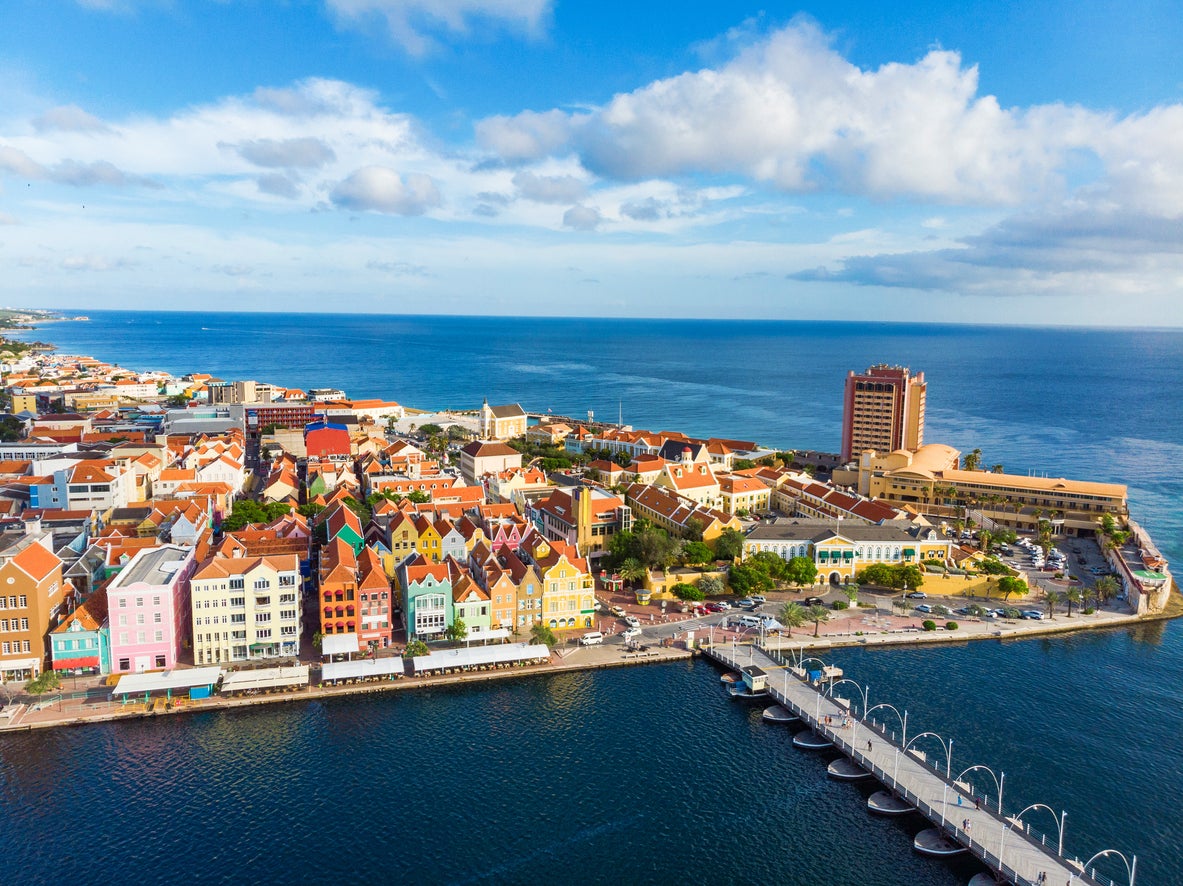
Curacao is the principal island in the Dutch Caribbean, part of the ABC islands (formally known as the Leeward Antilles) along with Aruba and Bonaire. The island is home to a unique blend of Dutch architecture, European and Creole cultural influences and untainted natural beauty. These are all showcased in the capital, Willemstad: colourful colonial buildings line the streets and the waterfront in the Punda district, while beaches such as Mambo and Parasasa provide seaside relaxation and locals communicate in Papiamentu (a language influenced by colonial-era Portuguese and Spanish).
Unsurprisingly considering the setting, many of the ‘things to do’ on the rest of the island consist of visiting beaches (Cas Abao and Kleine Knip are highly rated) and other natural sites including the Shete Boka National Park and the Hato Caves, although Willemstad offers plenty of opportunities to learn about the island’s history and culture.
Where to stay
The Avila Beach Hotel is located just five minutes’ drive from the centre of Willemstad and has its own section of pristine private beach, as well as an outdoor swimming pool.
Bonaire
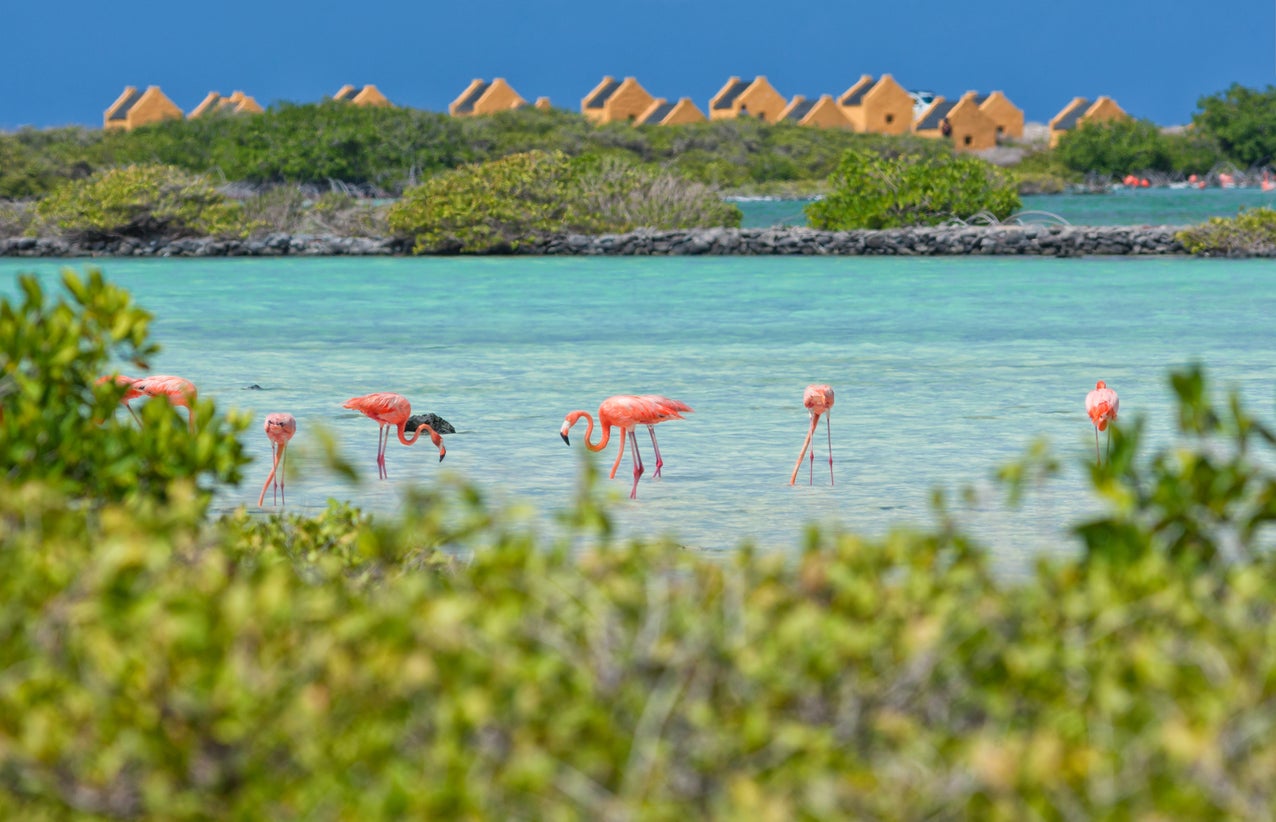
The least populated of the Lesser Antilles, Bonaire lies 50 miles off the coast of Venezuela – in other words, comfortably outside of the hurricane belt. Its capital is Kralendijk, with many colourful buildings giving it Dutch colonial character. The island has a reputation for being a fantastic destination for wildlife spotting (both on land and in the sea) and scuba diving (mainly due to long-term preservation efforts that have been running since the 1970s).
The Washington Slagbaai National Park is the main on-land attraction, where visitors can see protected birds (such as the yellow-shouldered parrot) and a range of flora and fauna. The Pekelmeer Flamingo Sanctuary is also popular, being one of only four areas in the world where the birds breed, but tourists have to spot the birds from afar. The National Marine Park – a Unesco Heritage Site – is one of the world’s oldest marine reserves, encircling the entire island and offering spectacular diving and snorkelling opportunities; it carries a $40 nature fee to aid preservation efforts. With an area of roughly 10 square miles and reefs that extend 300 metres offshore, the reserve is home to a range of local species, from turtles and sea horses to reef sharks.
Where to stay
The Bellafonte offers contemporary, luxury accommodation and a private pier area with direct access to the sea, and even a private coral reef area for scuba diving.
Read more on Central American and Caribbean travel:
Aruba
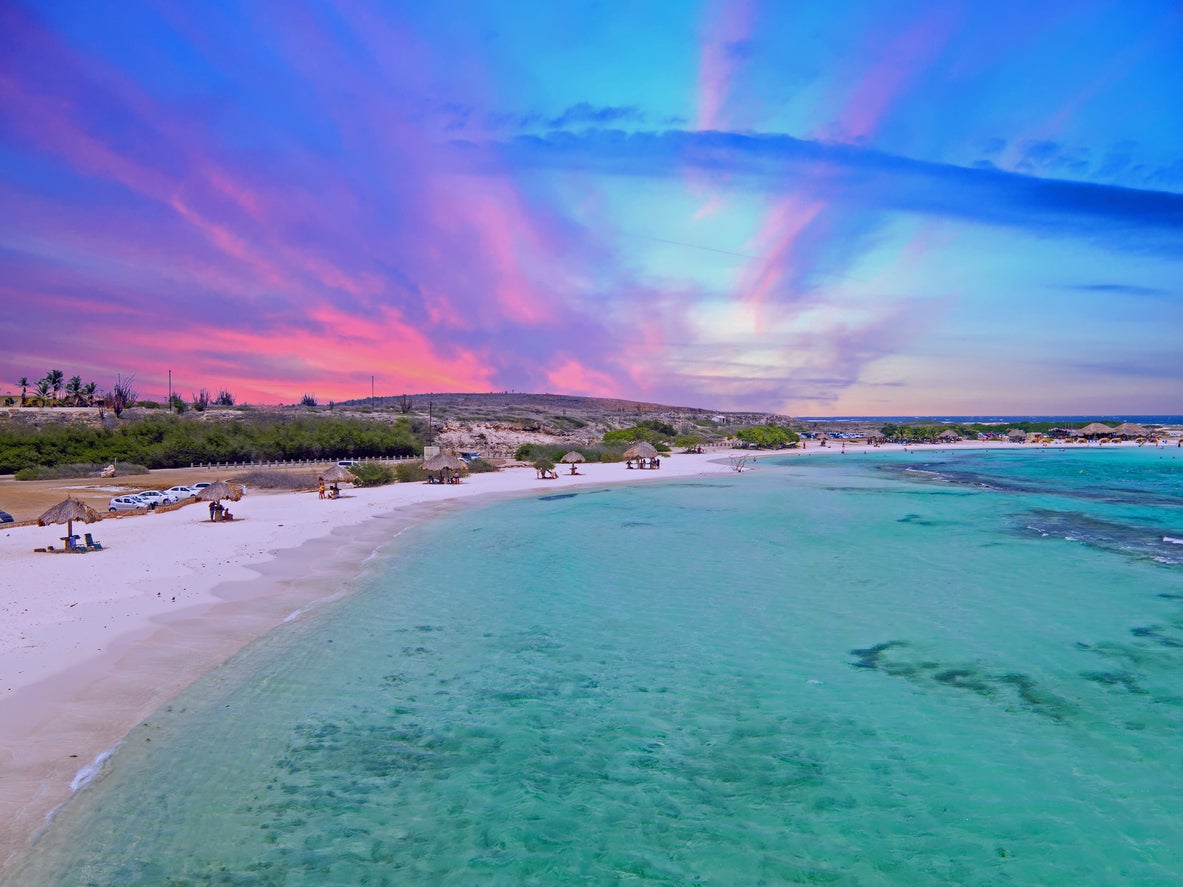
The smallest of the ABC islands, Aruba is said to have the most sunny days of any island in the entire Caribbean. It has a different landscape to most of them, with inland areas mainly consisting of arid, cactus-strewn land in places such as the Arikok National Park, as well as white-sand beaches such as Baby Beach and Dos Playa.
Away from the charming and colourful capital, Oranjestad, the aforementioned Arikok includes the popular Conchi natural pool and several beaches, while plenty of other parts of the island can be explored by sailing, scuba diving, and cycling.
Where to stay
All of the accommodation at the Boardwalk Boutique Hotel is housed in colourful beach-house cottages consisting of a bedroom, kitchen and living-dining area. There’s a palm tree-lined pool area and access to the well-known Palm Beach just 200 metres away.
Barbados
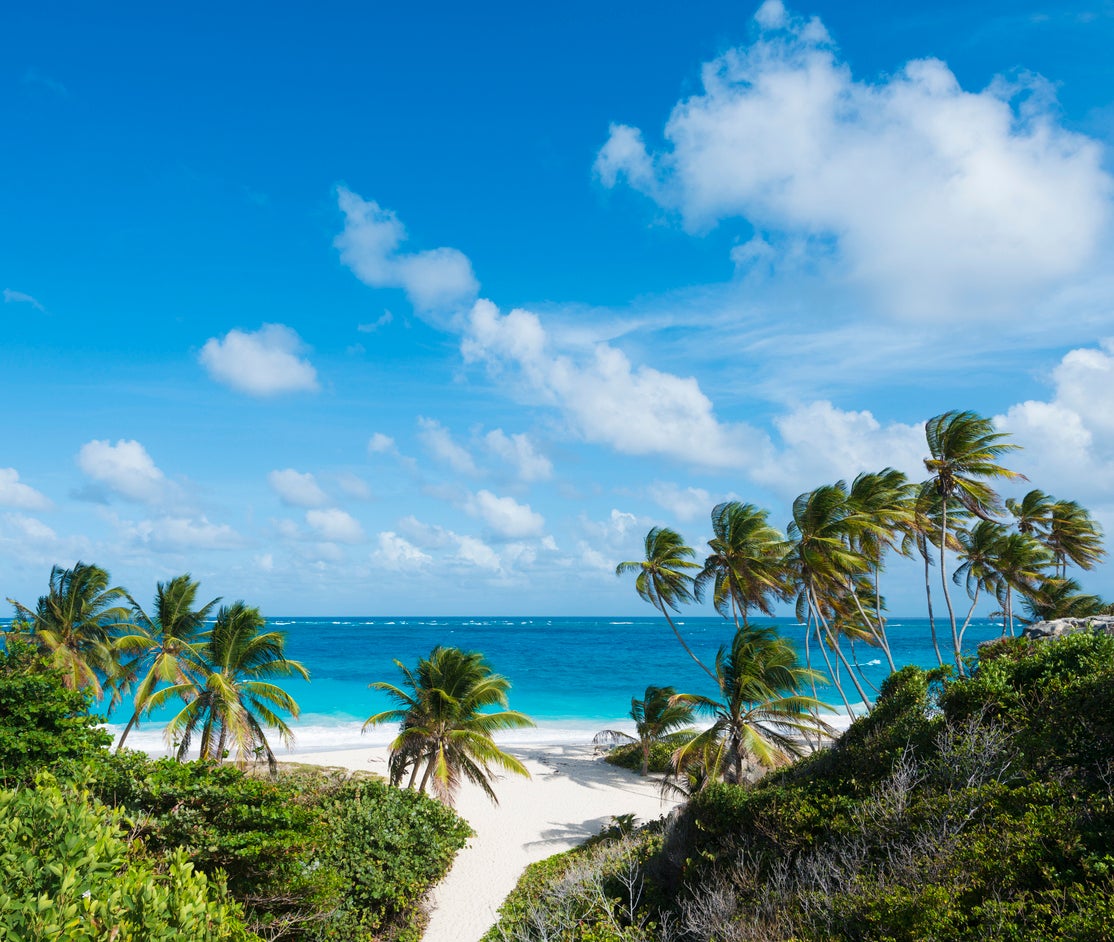
While technically a part of the hurricane belt, Barbados has not been affected by a hurricane since 1955; instead, its reputation for laid-back living, spectacular natural scenery, pleasant weather and exceptional resorts has seen it become one of the UK’s favourite long-haul destinations.
Bridgetown, itself a Unesco World Heritage Site, is the bustling capital and the heart of the island, though Speightstown and Holetown are also worth visiting to discover more of the local history and culture, from the Mount Gay Rum distillery to the island’s annual Crop Over celebrations. No matter where you stay, the chances are that you’ll be spending a lot of time at the beach; from Pebbles Beach to Bottom Bay, there are miles of idyllic beaches with fine white sands, dazzling blue waters and towering palm trees to discover.
Where to stay
Situated next to the white sands of Colony Club Beach, the Colony Club is a quintessentially Caribbean hotel with a serene setting, including a scenic outdoor pool area. Part of the Elegant Hotels chain, it offers water taxis to the company’s other nearby hotels.
St Vincent and the Grenadines
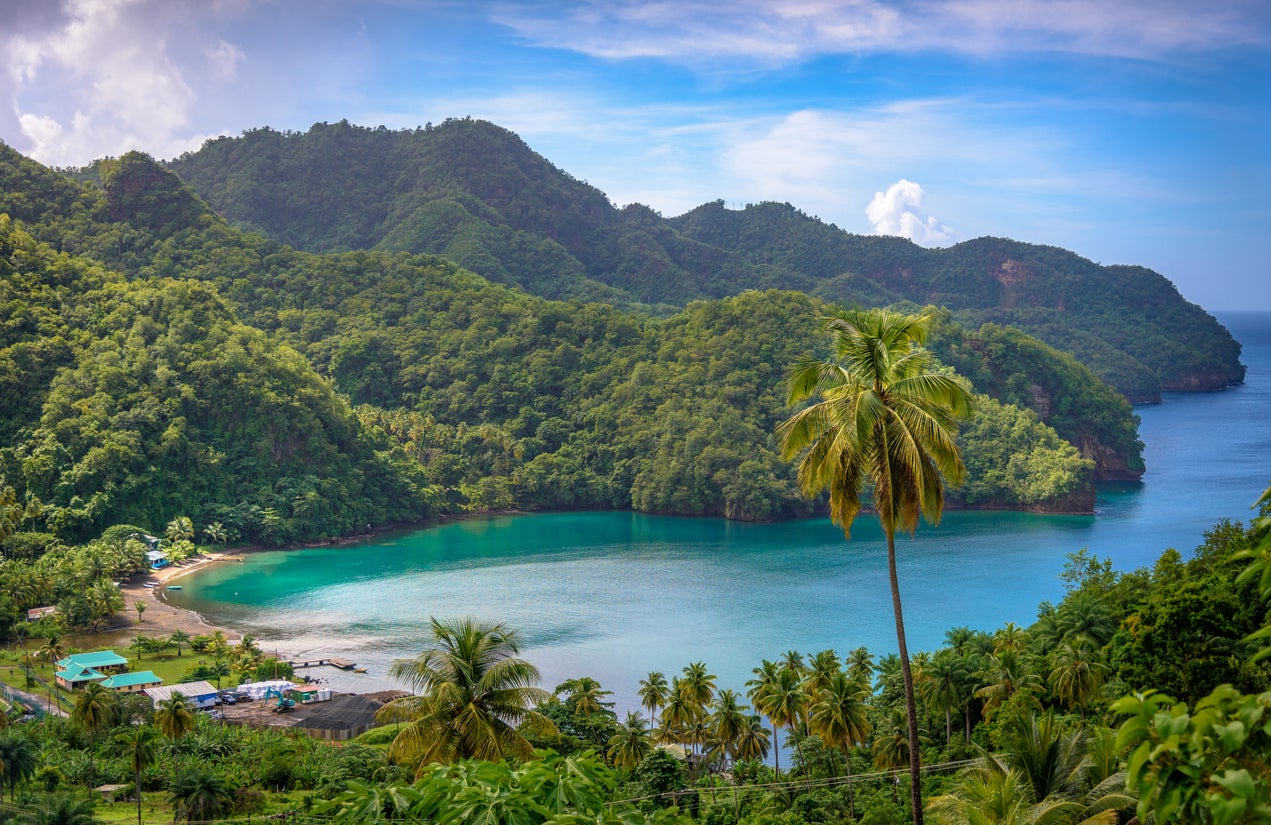
Like Barbados, St Vincent and the Grenadines does lie in the hurricane belt but usually remains mostly untouched by hurricanes (for example, during Hurricane Harvey in 2017, the only effects on the islands were the loss of power in some northern areas). This island chain lies roughly 100 miles west of Barbados, and is a lesser-visited, crowd-free alternative where many of its 32 islands have avoided over-development due to tourism.
The islands’ landscapes are slightly different to the mainly flat Barbados, with lush greenery and rolling mountains dominating the inland areas – La Soufriere is the highest point on any of the islands, standing at an impressive 1,234 metres. The islands are a mixture of uninhabited, idyllic places such as Tobago Cays and small, exotic islands like Bequia and Petit Saint Vincent, but serene beaches, emerald waters and a palpable sense of relaxation and tranquility can be found throughout.
Where to stay
The Liming Bequia lies just a few steps from Atheal Ollivierre Beach and provides guests with minimalistic, contemporary accommodation in a tropical setting, along with access to a private pool, garden and terrace.
Trinidad and Tobago
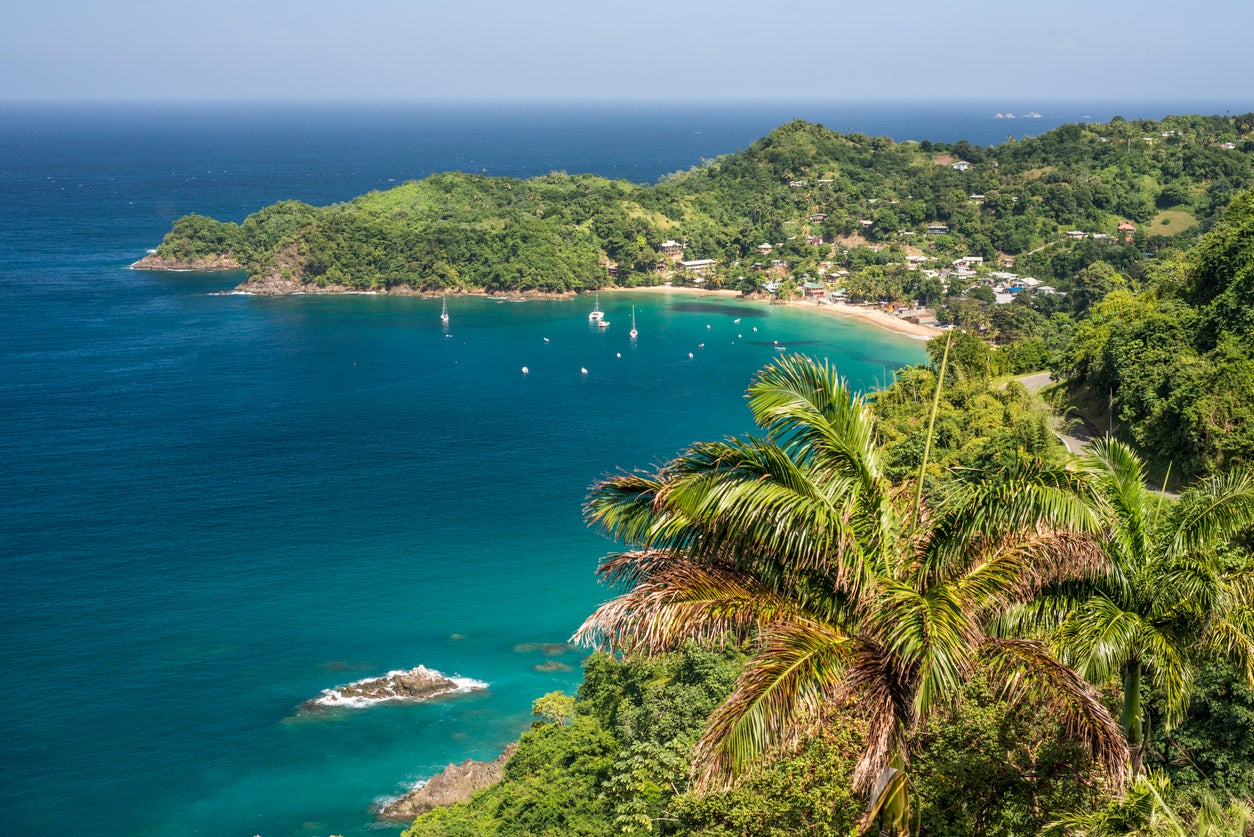
A dual-island nation that lies just under seven miles north of the Venezuelan coast, Trinidad and Tobago is one of the wealthier nations in the Caribbean due to natural oil and gas reserves. This wealth has led to a higher level of development than in most other Caribbean countries, which has mainly taken place on Trinidad (and is perhaps most visible in its two main cities, Port of Spain and San Fernando). This is the destination for best experiencing the country’s mix of African, Indian and Caribbean cultures, from Hindu statues to Caribbean music and cuisine.
Trinidad also boasts its fair share of tropical rainforest, wildlife and natural wonders, such as the chance to see a scarlet ibis at Caroni Swamp. Meanwhile, Tobago is a lesser-developed island that is more geared towards tourism, with several resorts and dozens of peaceful beaches with extensive coral reefs, including Englishman’s Bay and Pigeon Point. Speyside is the best destination for diving and snorkelling, while the old capital, Scarborough, has a buzzing market and historical fort.
Where to stay
The Blue Haven Hotel sits on the seafront just 100 metres from Bacolet Bay Beach. There’s an outdoor pool, restaurant and pared-back rooms, many of which come with sea views.
Grenada
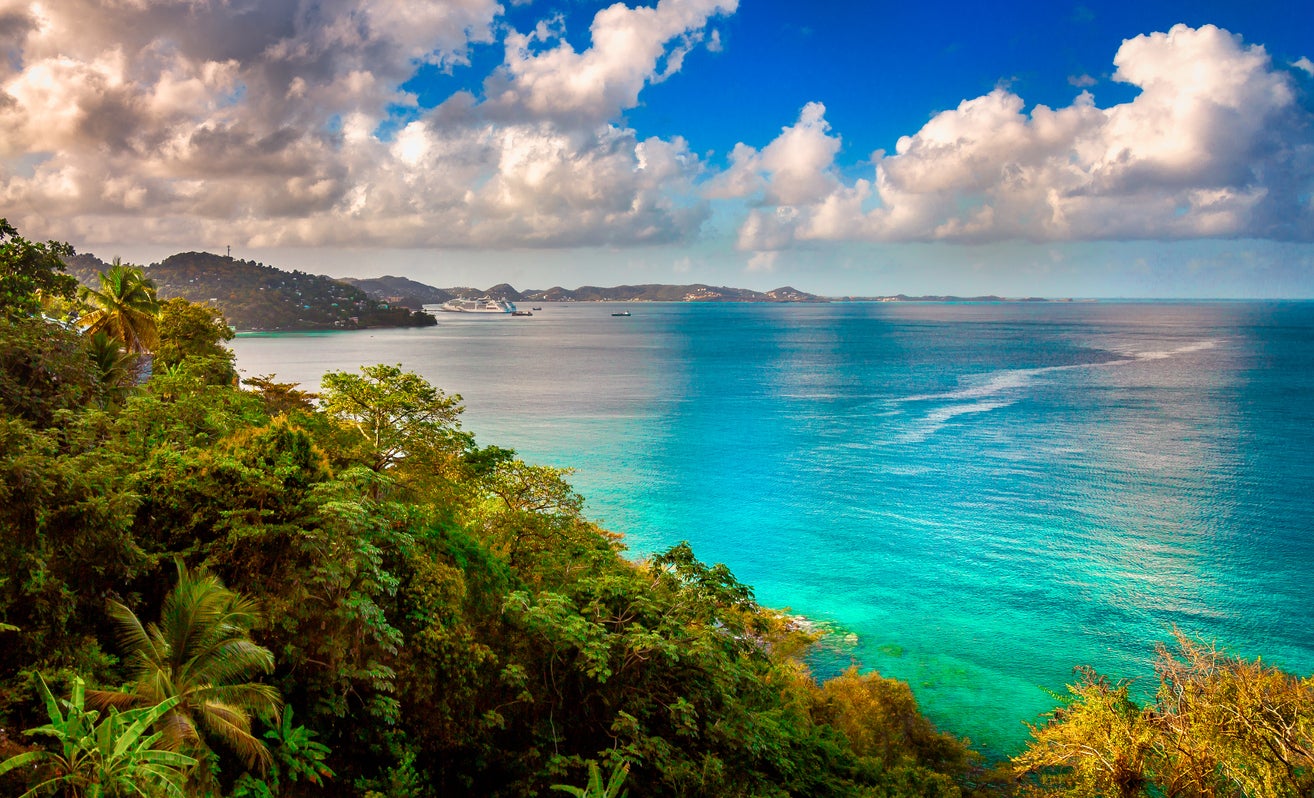
Colloquially known as the Isle of Spice, Grenada is famous for its exports of various spices; nutmeg, its primary export, is even featured on the country’s flag. This small and relatively untouched island nation is home to over 50 beaches, three national parks and one city – the capital, St George’s. Surrounded by hillsides, the small city is home to a picturesque harbour, the 18th-century Fort George and the country’s National Museum.
Away from the settlements, the Grand Etang National Park offers hiking trails along mountainous slopes, dramatic waterfalls and a water-filled volcano crater, while the nearby islands of Carriacou and Petit Martinique offer sunset cruises and day trips filled with scuba diving and beach relaxation. Back on the main island, Grand Anse is the country’s most famous beach, while Morne Rouge is great for families due to calm waters and shelter provided by trees. La Sagesse is a good option for maximum peace and quiet, with just one small hotel in the immediate vicinity.
Where to stay
The Calabash is a luxury, family-run option on the south coast of the island. It is set in a hidden bay area on the Lance aux Epines beach, with its own infinity pool and three different restaurants.
Read our reviews of the best winter sun hotels
Join our commenting forum
Join thought-provoking conversations, follow other Independent readers and see their replies
Comments